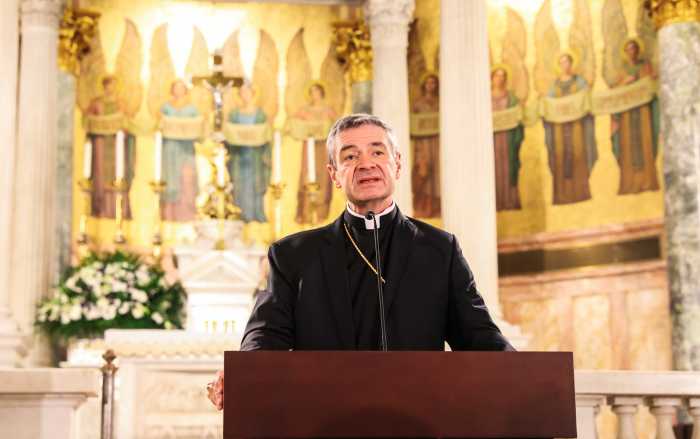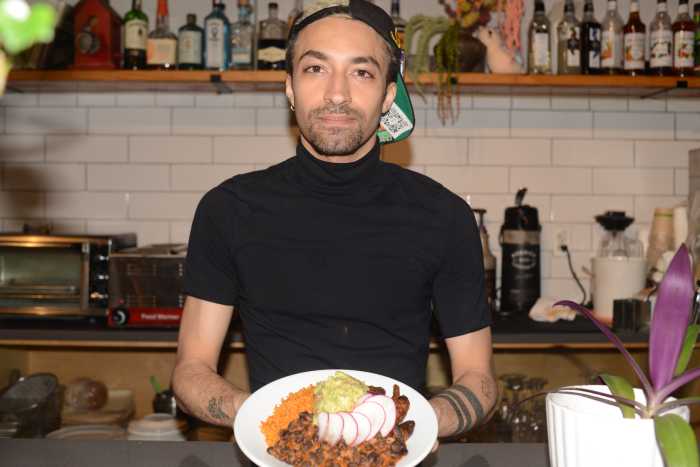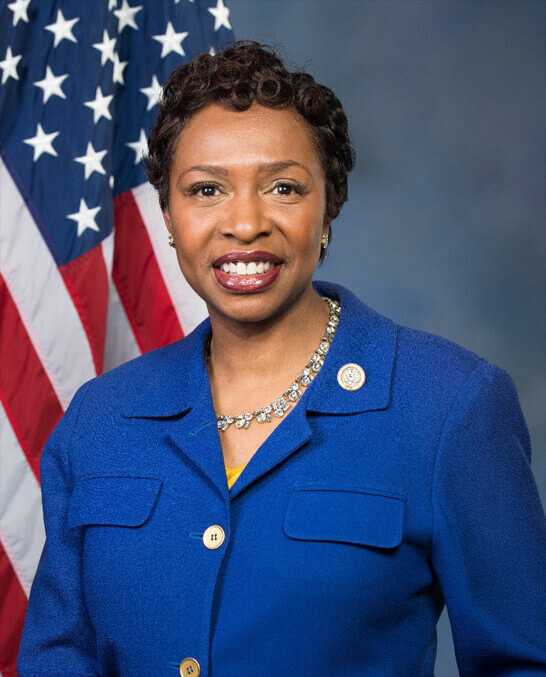BY KELLY JEAN COGSWELL | In the American left, it's a deeply held notion that for minorities the only road to equality is identity politics, all that organizing around skin-deep similarities and differences, and the superficial qualities of gender or race waved like flags because there's no denying they have an often vicious impact.
Still, I'm a reluctant patriot. Sometimes the connections seem like anchors, or an umbilical cord connecting me, for instance, to other women, other dykes. Other times there's nothing between us, and I feel like an asshole for insisting we share more than a species.
What really do I have in common with that chick clattering down the street in her high heels, purse swinging from elbows as she screams into her cell phone and runs for an appointment? Or that mother of four slumped on the bus? What about that baby dyke, tough as nails, standing by the modernist statue I always think looks like Gertrude Stein on roller skates? Do I dare approach, even smile? Barriers are everywhere.
Sunday, I stepped into this café in Paris where I'd never been and did something I hadn't done in ages, which was to belly up to the shiny zinc bar, order a coffee, and stand there and drink it while around me people read their papers and finished their meals.
Before the January 1 ban, clouds of smoke rose from tight mouths and yellowed fingers, issuing from the doors of bars and restaurants like a wall keeping out all of us non-smokers and asthmatics. Coating our clothes. Crawling into our hair and our lungs. Sending us running.
It was good coffee. And cheap. You get a discount in France for standing at the bar instead of sitting at a table inside or on the terrace. Maybe when I'm done writing this I'll go out and get a beer or small glass of white like the boys. And I'll stand there listening to the idle chat. Feel the life around me that appears in shifts. The unemployed and alcoholics early on. The ones in for a quick coffee fix after lunch. Mothers out for tea. The pre-dinner drinks. The students lingering for hours over an espresso. A dating couple stretching out the night.
I'd missed that, the sense of life passing through cafes like water, and dipping my toes in. Because I can't deal with smoke I'd been exiled in winter from that feeling of community that doesn't require you to make conversation. Just look up sometimes from your newspaper and smile at somebody's joke.
In New York I used to get that from the Laundromat, listening to the idle talk of regulars I knew by sight and who knew me. I could feel part of the species without having to work at it. I suppose that's why some people go to church and sit in the back pews, drop a dollar in the collection plate and leave before all the handshaking and accountability starts even if they find
peculiar all that talk of God and Heaven and Eternal Life.
It's why just out of college I used to hang out in bars and cafés in the afternoon. There was this one in Cincinnati that had a pressed tin ceiling, a happy hour that started at two, and John Lee Hooker on the jukebox. The sun would stream in if there were any and I'd go in with a friend and order a drink, and enjoy doing nothing in the afternoon when everybody else was at work, and listening to scratchy blues.
Before that it was the kitchen table in my mother's house where neighbor women would stop by for a cup of coffee and the murmur of voices was their music. I'm not sure how deep their friendships went. They ripped apart anybody not sitting there, but they were company for each other. They made the discrete little houses seem less like isolation cells where they were stuck with their children and husbands. They were connected. And I was too, running in and out of the room with my sisters and the other kids.
I think American cinema gets it all wrong when they have Brando longingly declaring, “I coulda' been a contender” or whoever else saying, “I coulda' been somebody.” A longing as deep or deeper is to be nobody at all if you can be it with other people.
I know it's ironic to write that, as hard as I've fought for queer and lesbian visibility. But the flip side of being invisible, the ghost in the room, is that when somebody suddenly notices, they try to violently exorcise you, erase you, make you more of an outsider than before.
What I want to be is what I am, not invisible or of no account, not exactly like everyone else, but free and unremarked upon, that girl drinking coffee, a common part of our common lives.





























